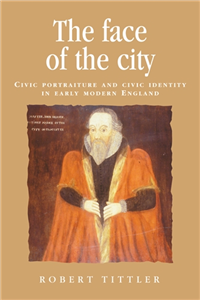The face of the city
Civic portraiture and civic identity in early modern England
by Robert Tittler, Peter Lake, Anthony Milton, Jason Peacey, Alexandra Gajda
Description
More Information
Rights Information
Afghanistan, Aland Islands, Albania, Algeria, American Samoa, Andorra, Angola, Anguilla, Antarctica, Antigua and Barbuda, Argentina, Armenia, Aruba, Australia, Austria, Azerbaijan, Bahamas, Bahrain, Bangladesh, Barbados, Belarus, Belgium, Belize, Benin, Bermuda, Bhutan, Bolivia, Bonaire, Sint Eustatius, Saba, Bosnia and Herzegovina, Botswana, Bouvet Island, Brazil, British Indian Ocean Territory, British Virgin Islands, Brunei, Bulgaria, Burkina Faso, Burundi, Cambodia, Cameroon, Canada, Cape Verde, Cayman Islands, Central African Republic, Chad, Chile, China, Christmas Island, Cocos [Keeling] Islands, Colombia, Comoros, Congo [DRC], Congo [Republic], Cook Islands, Costa Rica, Cote d'Ivoire, Croatia, Cuba, Curaçao, Cyprus, Czech Republic, Denmark, Djibouti, Dominica, Dominican Republic, Ecuador, Egypt, El Salvador, Equatorial Guinea, Eritrea, Estonia, Ethiopia, Falkland Islands [Islas Malvinas], Faroe Islands, Fiji, Finland, France, French Guiana, French Polynesia, French Southern Territories, Gabon, Gambia, Georgia, Germany, Ghana, Gibraltar, Greece, Greenland, Grenada, Guadeloupe, Guam, Guatemala, Guernsey, Guinea, Guinea-Bissau, Guyana, Haiti, Heard Island and McDonald Islands, Honduras, Hong Kong, Hungary, Iceland, India, Indonesia, Iran, Iraq, Ireland, Isle of Man, Israel, Italy, Jamaica, Japan, Jersey, Jordan, Kazakhstan, Kenya, Kiribati, Kuwait, Kyrgyzstan, Laos, Latvia, Lebanon, Lesotho, Liberia, Libya, Liechtenstein, Lithuania, Luxembourg, Macau, Macedonia [FYROM], Madagascar, Malawi, Malaysia, Maldives, Mali, Malta, Marshall Islands, Martinique, Mauritania, Mauritius, Mayotte, Mexico, Micronesia, Moldova, Monaco, Mongolia, Montenegro, Montserrat, Morocco, Mozambique, Myanmar [Burma], Namibia, Nauru, Nepal, Netherlands, New Caledonia, New Zealand, Nicaragua, Niger, Nigeria, Niue, Norfolk Island, North Korea, Northern Mariana Islands, Norway, Oman, Pakistan, Palau, Palestinian Territories, Panama, Papua New Guinea, Paraguay, Peru, Philippines, Pitcairn Islands, Poland, Portugal, Puerto Rico, Qatar, Reunion, Romania, Russia, Rwanda, Saint Barthélemy, Saint Helena, Saint Kitts and Nevis, Saint Lucia, Saint Martin, French part, Saint Pierre and Miquelon, Saint Vincent and the Grenadines, Samoa, San Marino, Sao Tome and Principe, Saudi Arabia, Senegal, Serbia, Seychelles, Sierra Leone, Singapore, Sint Maarten (Dutch Part), Slovakia, Slovenia, Solomon Islands, Somalia, South Africa, South Georgia and the South Sandwich Islands, South Korea, South Sudan, Spain, Sri Lanka, Sudan, Suriname, Svalbard and Jan Mayen, Swaziland, Sweden, Switzerland, Syria, Taiwan, Tajikistan, Tanzania, Thailand, Timor-Leste, Togo, Tokelau, Tonga, Trinidad and Tobago, Tunisia, Turkey, Turkmenistan, Turks and Caicos Islands, Tuvalu, U.S. Minor Outlying Islands, U.S. Virgin Islands, Uganda, Ukraine, United Arab Emirates, United Kingdom, United States, Uruguay, Uzbekistan, Vanuatu, Vatican City, Venezuela, Vietnam, Wallis and Futuna, Western Sahara, Yemen, Zambia, Zimbabwe
Endorsements
Our conventional understanding of English portraiture from the age of Holbein and Henry VIII on to Reubens, VanDyck and Charles I clings to the mainstream images of royalty and aristocracy and to the succession of known practitioners of 'Renaissance' portraiture. Projection of the royal or aristocratic persona, the self-fashioning of the individual, remained the main objective of these works, and the steady development towards more sophisticated stylistic conventions, as imported by prominent foreign-trained artists, remains the traditional art historical context in which they have been considered. In almost every respect, the 'civic' portraits examined here stand in sharp contrast to these traditional narratives. Depicting mayors and aldermen, livery company masters, school and college heads, they were meant to be read as statements about the civic leaders and civic institutions rather than about the sitters in their own right. Displayed in civic premises rather than country homes, exemplifying civic rather than personal virtues, and usually commissioned by institutions rather than their sitters, they have yet to be considered as a type of their own, or in their appropriate social and political context. Tittler presents them here as statements about civic identity, as integral components of the political culture of civic institutions in post-Reformation England. Along the way, he offers pioneering examinations of the 'folk' or vernacular styles in which they were often done, of the anonymous, native-English artisan-painters who usually did them and of the local and regional basis of this type of portrait painting. A remarkable study that will be welcome by early modern historians and art historians. -
Author Biography
Robert Tittler is Distinguished Professor Emeritus at Concordia University, Montreal; Peter Lake is University Distinguished Professor of History at Vanderbilt University; Anthony Milton is Professor of Early Modern British History at the University of Sheffield
Manchester University Press
Manchester University Press is a leading UK publisher known for excellent research in the humanities and social sciences.
View all titlesSeries Part
Bibliographic Information
- Publisher Manchester University Press
- Publication Date January 2013
- Orginal LanguageEnglish
- ISBN/Identifier 9780719089077
- Publication Country or regionUnited Kingdom
- FormatPaperback
- Primary Price 26.95 USD
- Pages224
- ReadershipGeneral/trade
- Publish StatusPublished
- Dimensions234 X 156 Millimeters
- IllustrationIllustrations, black & white
- SeriesPolitics, Culture and Society in Early Modern Britain
- Reference CodeIPR6525
Manchester University Press has chosen to review this offer before it proceeds.
You will receive an email update that will bring you back to complete the process.
You can also check the status in the My Offers area

Please wait while the payment is being prepared.
Do not close this window.



